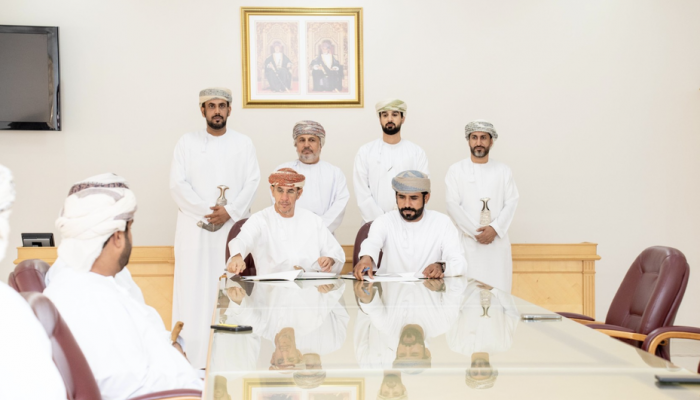The Ministry of Agriculture, Fisheries and Water Resources in Al Buraimi Governorate recently signed 24 agreements for the restoration of aflaj in the wilayats of Buraimi and Mahdha, totaling over RO 500,000. This initiative is part of the ministry’s ongoing efforts to preserve aflaj and sustain natural water resources in the region. Eng. Nasser Ali Al Marshoodi, Director General of Agriculture and Water Resources in Al Buraimi Governorate, emphasized the importance of these agreements in maintaining the traditional water canals that are vital for irrigation and agriculture in the area.
The signing of these agreements highlights the commitment of the Ministry of Agriculture, Fisheries and Water Resources to the conservation of aflaj in Al Buraimi Governorate. These manmade water canals have been a crucial source of water for irrigation and agriculture in the region for centuries. By investing in the restoration of aflaj, the ministry is not only preserving a vital part of Oman’s heritage but also ensuring sustainable water resources for future generations.
Representatives of companies entrusted with the projects were present at the signing ceremony, along with Sheikh Rashid Said Al Kalbani, Wali of Al Buraimi. The presence of these key stakeholders further underscores the significance of the agreements and the collaborative effort required to protect and maintain aflaj in the region. The restoration of these water canals will not only benefit local farmers and communities but also contribute to the overall sustainability of water resources in Al Buraimi Governorate.
The restoration of aflaj in the wilayats of Buraimi and Mahdha will have a positive impact on agricultural productivity in the region. Aflaj have long been used for irrigation and cultivation of crops in Oman, and their restoration will help enhance agricultural practices in the area. By investing in the maintenance of these traditional water systems, the Ministry of Agriculture, Fisheries and Water Resources is supporting the livelihoods of local farmers and promoting sustainable agriculture in Al Buraimi Governorate.
In addition to supporting agriculture, the restoration of aflaj will also have environmental benefits for the region. Aflaj play a significant role in maintaining the ecological balance of the area by providing a source of water for plants, animals, and ecosystems. By preserving these manmade water canals, the ministry is contributing to the conservation of biodiversity and natural habitats in Al Buraimi Governorate. The restoration of aflaj represents a holistic approach to water resource management that takes into account both socio-economic and environmental considerations.
Overall, the signing of agreements for the restoration of aflaj in Al Buraimi Governorate signifies a significant step towards the sustainable management of water resources in the region. By preserving these traditional water canals, the Ministry of Agriculture, Fisheries and Water Resources is not only safeguarding Oman’s cultural heritage but also ensuring the availability of water for agricultural purposes. The collaborative efforts of the ministry, companies, and local authorities demonstrate a shared commitment to the conservation of aflaj and the promotion of sustainable agriculture in Al Buraimi Governorate.











